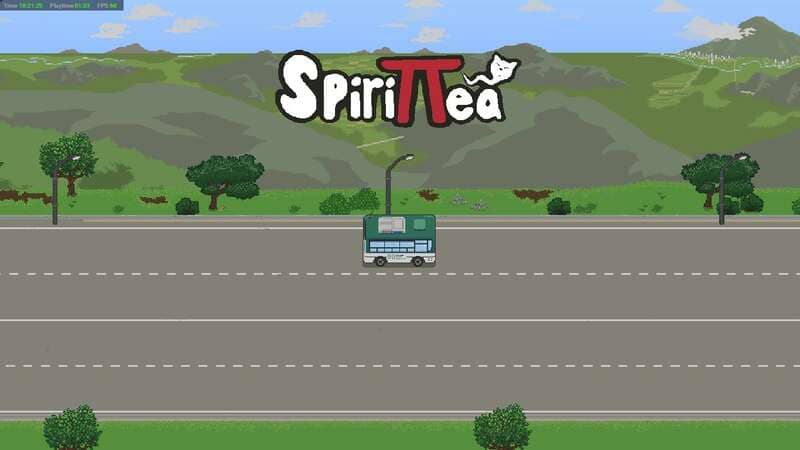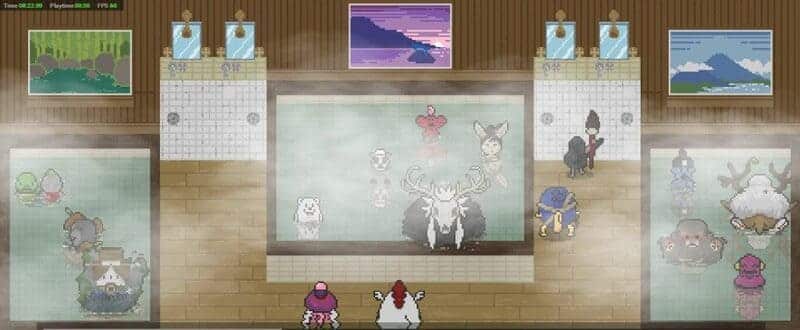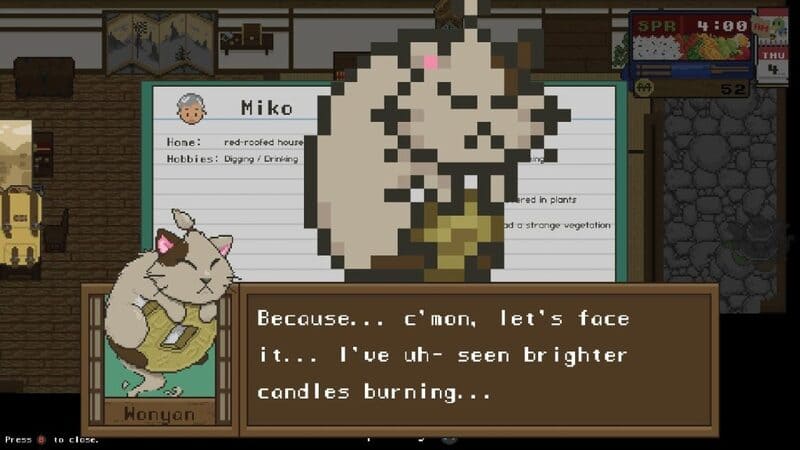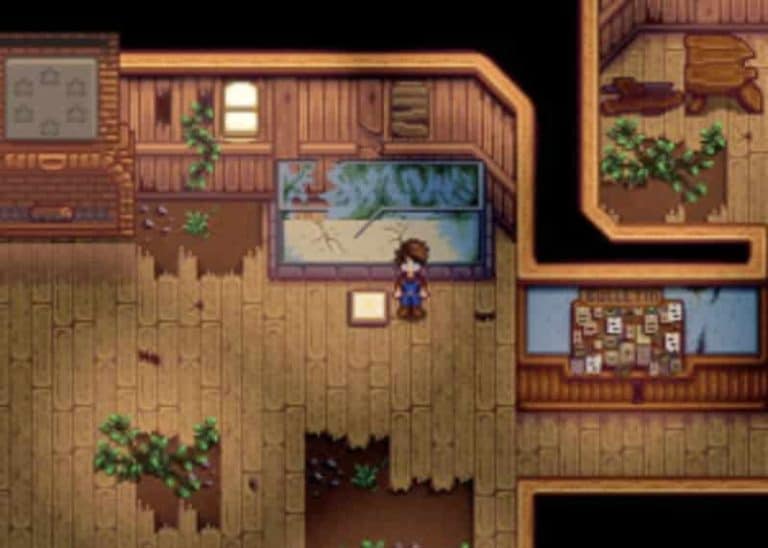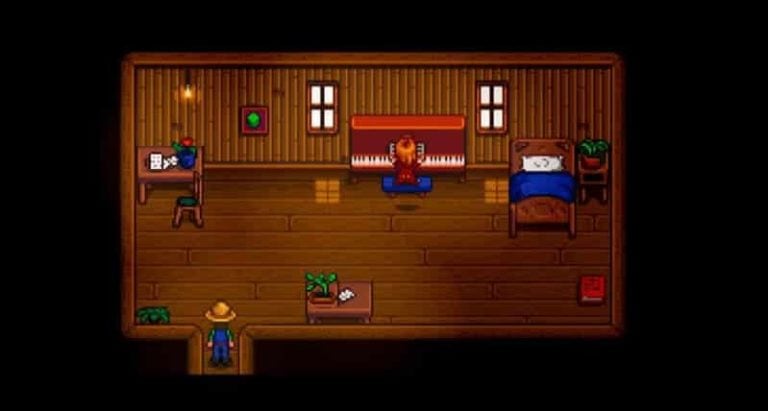Spirittea, A Light-Hearted Spirited Away Simulator
Spirited Away is one of my favorite Studio Ghibli movies in the 2000s. I could watch it a hundred times and never lose sight of what made it special. Its Japanese bathhouse inn where wandering and visiting spirits need to rest piqued my curiosity about supernatural beliefs.
The atmosphere changes between night and day is breathtaking. And let’s not forget the spirit designs. They are incredibly weird, scary, and cute for creatures of Japanese folklore. I sometimes had dreams of wanting to experience Spirited Away and interact with the spirits that roam between planes of existence.
Soon, that dream came to life in an unexpected indie life simulator called Spirittea.
What is Spirittea?
Spirittea is a life simulation game about hunting and nursing care for lost spirits. You play as a fantasy author from the big city. You traveled to a small mountain town to live in to find inspiration for your novel. The farmer, Tifa gives you a sample of her tea leaves and you drink it using an old tea set.
Your vision began to see the money-loving cat spirit, Wonyan. He informs you that paranormal events are occurring because of lost spirits. To help them, you must find, resolve their conflict, and offer them a bath at the abandoned bathhouse.
I first learned about this game when I opened my Opera GX Game Corner. In their lineup of game highlights was Spirritea’s website. Its trailer got me hooked on manning a bathhouse for spirits. I followed Spirritea’s development since and bought it on launch day, November 13th, 2023. I played Spirittea for half of a Saturday and felt ecstatic to play again the next day.
Cheesemaster Games’ Spirittea Development
Cheesemaster Gamesdeveloper, Dan Beckerton started the game’s development after returning home to his country, Canada in March 2019, a year before the COVID-19 pandemic. He taught himself game programming part-time while teaching English in South Korea on his first game, Fables of Talumos. In his Kickstarter campaign, Bickerton mentioned he loved living in the Korean countryside and traveling to Japan for the spiritual culture. He described this game as his “A home away from home”.
On his previous project, Beckerton worked solo from start to finish. In Spirittea, the indie game publisher, No More Robots assists him with marketing, and composer Daniel Linares provides the soundtrack. No More Robots has also published Yes, Your Grace and Hypnospace Outlaw.
The Inspiration Behind Spirittea’s Design
Along with the South Korean and Japan trip nostalgia, Beckerton implemented the game’s aesthetic as an ode to two Studio Ghibli films, My Neighbor Totoro and Spirited Away. As you progress into finding these spirits, you may notice how each design is inspired by Japanese and Norse folklore. My favorite from of all the spirits is Oishiki (the spirit with the deer skull) as he reminds me of the monster sorcerer, Elias from The Ancient Magus’ Bride.
The town environment shows Bickerton’s appreciation of living in the South Korean countryside. You have an antique produce and knick-knacks shop owned by the town’s long-time sister residents, Miko and Ameilia, and Amelia’s daughter, Song who carries her baby on her back, Momo. Next to their shop is a large farm where they grow their produce.
There’s a school next to the east beach with Principal Bruce greeting everyone he sees with a smile. It shows Beckerton loved teaching as an English teacher and wanted to put in a cast of teachers, a school nurse, and a bus driver to show his dedication.
The south of town has a stone hill reserved for a Buddhist temple. Only one monk resides there named Young and the town’s two dogs, Jan and Maru. This is heavily based on Buddhism being the major religion in most of Asia.
Across it is a late-night food stand owned by the town’s artist, Leigh, and the green fields owned by farmer Tifa. There is a small downtown area with a Korean BBQ restaurant, a karaoke lounge, a bike shop, and a coffee shop. All of these represent a part of Asia’s get-together activities and lifestyle.
Finally, there’s the mountain area. On the west side, an abandoned train rail, hot springs, and Buddhist statues scattered around the shrine ruins. On the east is where our Spirit Bathhouse resides with a stone garden and giant sakura tree.
Spirittea‘s Approach to Gameplay
In Spirittea’s Kickstarter campaign video and a post on Instagram and Twitter, Bickerton shows off some of the game inspirations. Two games shown in this image are Animal Crossing (red shirt boy on the left) and Harvest Moon (blue overall farmer on the right) for their townspeople concept, work simulation, and lifestyle. Other inspirations are Majora’s Mask with a day-and-night cycle task mechanic, Stardew Valley with its milestone system, and Pokémon for the character sprite and minigame designs.
These elements have created a relaxing yet challenging gaming environment for players to tackle each task at their own pace. I defined Spirittea’s spirit-hunting mechanic as Majora’s Mask event memorization mixed with Yokai Watch ghost puzzles.
Finding these spirits requires using your Spirittea meter. You can gather tea leaves from Tifa and make more with your tea set at your house. You can carry tea with you once you buy a thermos from Miko’s shop.
You can find tasks on the Notice Board next to Miko’s shop. Finding each spirit requires information gathering. The townspeople affected by a specific spirit will give you clues about when and where these spirits appear along with their supernatural abilities. If you’re worried about not remembering every detail, you have a journal for each resident that keeps track of their troubles and clues.
However, that’s not always the case. There were two moments I freaked out when I heard noises or saw a supernatural occurrence while playing the game. Certain spirits may come around to haunt you instead of the townspeople.
Oishiki, for example, appears when you see your text box popping out of the blue and its double sliding doors where character portraits should be are opening and closing. When it opens again, you see an instant cup of spicy noodles lying on the ground, eaten. Wonyan indicates to the player that this could be the way to lure Oishiki to your text box doors.
After finding each spirit, they will remember who they are and Wonyan offers them a bath at the mountain’s bathhouse. The bathhouse gameplay reminds me of Bugsnax where the player learns about a Bugsnak’s likes, dislikes, and the Snax they are compatible with. The player’s responsibility is managing the guests, heating, towel laundry, and running.
In winter, an extra task is added for breaking ice with your shovel. You can prevent this by ordering space heaters for each bath. Each spirit will pay for your services before leaving.
Wonyan underestimated managing the bathhouse for one person since it wastes plenty of stamina in a short amount of time. He then suggests befriending the townspeople to become your workers. In the journal, their page shows you their hobbies.
This is useful when you want to increase your friendship meter and when you want to collect resources like digging treasures and fishing. The spirit Fenias will later become a buyer of your useless resources for extra cash once you build them a shrine to live in. Certain activities will forward time quickly like the Titanic Drink and Korean BBQ minigames. You can also pass the time by sleeping a certain amount of hours.
Once you max out the friendship meter to 3 hearts, you can assign one friend to a job task at the bathhouse. You’ll waste less energy doing all the tasks and focus on guest management. You will still drain stamina so cook some food or buy it at Kenzo’s convenience store to restore it. And for every customer milestone you reach, your Spirittea meter will increase and you’ll have more opportunities to see other spirits.
Last but not least, you can upgrade the bathhouse over time. Fae, the town’s carpenter and blacksmith, will offer to refurbish the bathhouse if you pay for her blueprints at the forge outside her house. Save your money for bigger baths as the spirits come in large numbers and all sizes.
What Gamer is Spirittea Best For?
Spirittea is best for people who have patience, love puzzles, and enjoy taking life slowly. While the bathhouse management system is not for everyone, you still feel accomplished when making money and restoring it to its former glory. The games’ aesthetic visuals are a reminder of simpler times. And its soundtrack eases you from a hard day’s work, becoming different each time the seasons change.
During Spirittea’s release, its bathhouse management system felt tedious and its life simulation fell flat. For the past five months, Cheesemaster Games and No More Robots have made updates to improve gameplay and its quality of life. Their recent updates are Wonyan becoming a hint system to learn about each spirit, stacking items in quantities of 9, and fixing bugs.
Give Spirittea a try, available for Nintendo Switch, Xbox/Xbox Game Pass, and Steam!
More Anime & Game Content
Need to hear more about Ghibli-related things? Check out our Howl’s Moving Castle article!
Should Final Fantasy VIII get a remake? Read our reasons why Square Enix should!
For More Great Content
Sema Chin is a fiction writer, hobbyist artist, and long-time gamer. Any piece of media that catches her curiosity, she’ll look into it until its very end. She’s a writer for Total Apex Entertainment & Gaming. Follow Sema’s blog on Instagram @nomnomnomo and check out her military sci-fi novel, Isle Lacion in stores.
About Total Apex
Total Apex is an all-encompassing content producer. We provide heavily-detailed articles daily on entertainment, gaming, sports, and so much more! Check out all our great sports content Total Apex Sports.

